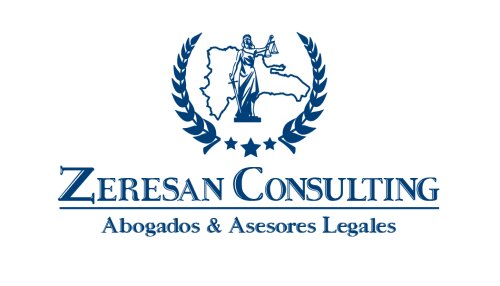Best Child Visitation Lawyers in Santo Domingo Este
Share your needs with us, get contacted by law firms.
Free. Takes 2 min.
Free Guide to Hiring a Family Lawyer
List of the best lawyers in Santo Domingo Este, Dominican Republic
About Child Visitation Law in Santo Domingo Este, Dominican Republic
In Santo Domingo Este, Dominican Republic, child visitation laws are designed to protect the rights of non-custodial parents, ensuring that they maintain a meaningful relationship with their children. These laws aim to balance the interests of the child, custodial parent, and non-custodial parent while ensuring the child's welfare and stability. The legal framework is rooted in the overarching principle of the best interests of the child, which guides judicial decisions in matters of visitation and custody.
Why You May Need a Lawyer
Legal assistance in child visitation matters may be crucial for several reasons:
- Disputes Over Visitation: Parents may disagree on the terms or frequency of visitation, requiring legal intervention to resolve.
- Modification of Visitation Arrangements: Changes in circumstances may necessitate a revision of visitation agreements, which often requires legal advice.
- Enforcement Issues: Non-compliance with visitation orders can lead to legal challenges that benefit from professional guidance.
- Relocations: One parent moving to a different jurisdiction can complicate visitation, necessitating legal assistance for adjustments.
- Mediation Needs: Lawyers can facilitate mediation between parents to reach amicable agreements on visitation.
Local Laws Overview
Santo Domingo Este follows the legal framework established by national laws, which include key aspects relevant to child visitation:
- The child’s best interest is the paramount consideration in deciding visitation rights.
- Visitation is separate from child support matters; issues with support payments do not affect visitation rights.
- Court-ordered visitation rights may require supervision if deemed necessary for the child's safety.
- Custodial parents must comply with visitation orders unless a legal change is pursued through the courts.
- Both parents have equal rights to seek court involvement to resolve visitation disputes.
Frequently Asked Questions
What determines the visitation schedule?
The court determines a visitation schedule based on the best interests of the child, considering factors like the child’s age, the parent's availability, and the child's routine.
Can visitation rights be changed?
Yes, either parent can request a modification of visitation rights through the courts if there's a significant change in circumstances.
What happens if one parent denies visitation?
If a custodial parent unlawfully denies visitation, the non-custodial parent can petition the court for enforcement of the visitation order.
Can a child refuse visitation?
While a child's preferences may be considered, especially if they are older, the final decision rests with the court under the best interests standard.
How is supervised visitation arranged?
Supervised visitation may be ordered by the court if necessary for the child’s safety and is typically arranged at a neutral location.
Do grandparents have visitation rights?
In some cases, grandparents may petition for visitation rights, especially if they play a significant role in the child's life.
How are visitation disputes mediated?
Mediation involves a neutral third party helping the parents reach a voluntary agreement on visitation terms without court intervention.
How does relocation affect visitation rights?
Relocation can complicate visitation; affected parents may need to modify the existing order to accommodate the new circumstances.
What should I bring to a visitation hearing?
Parents should bring any relevant documents, such as previous court orders, communication logs, and evidence supporting their case or concerns.
Can visitation occur during holidays?
Visitation schedules often include provisions for holidays, either alternating them between parents or dividing them equitably each year.
Additional Resources
For those seeking further information or assistance, consider the following resources:
- Family Courts: Local courts can provide guidance on filing petitions and understanding visitation orders.
- Legal Aid Services: Organizations offering legal aid may assist those who qualify for free or reduced-cost services.
- Child Welfare Organizations: Non-profits dedicated to children's welfare can offer advice and support.
Next Steps
If you require legal assistance with child visitation matters:
- Consult with a lawyer specializing in family law to understand your rights and options.
- Gather any documentation that might be relevant to your case, including past orders and communication records.
- Consider alternative dispute resolution methods such as mediation to avoid lengthy court battles.
- Be proactive in knowing your legal responsibilities and ensuring compliances, such as adhering to existing visitation orders.
Engage with the legal process as early as possible to protect your rights and foster a stable environment for your child.
Lawzana helps you find the best lawyers and law firms in Santo Domingo Este through a curated and pre-screened list of qualified legal professionals. Our platform offers rankings and detailed profiles of attorneys and law firms, allowing you to compare based on practice areas, including Child Visitation, experience, and client feedback.
Each profile includes a description of the firm's areas of practice, client reviews, team members and partners, year of establishment, spoken languages, office locations, contact information, social media presence, and any published articles or resources. Most firms on our platform speak English and are experienced in both local and international legal matters.
Get a quote from top-rated law firms in Santo Domingo Este, Dominican Republic — quickly, securely, and without unnecessary hassle.
Disclaimer:
The information provided on this page is for general informational purposes only and does not constitute legal advice. While we strive to ensure the accuracy and relevance of the content, legal information may change over time, and interpretations of the law can vary. You should always consult with a qualified legal professional for advice specific to your situation.
We disclaim all liability for actions taken or not taken based on the content of this page. If you believe any information is incorrect or outdated, please contact us, and we will review and update it where appropriate.










